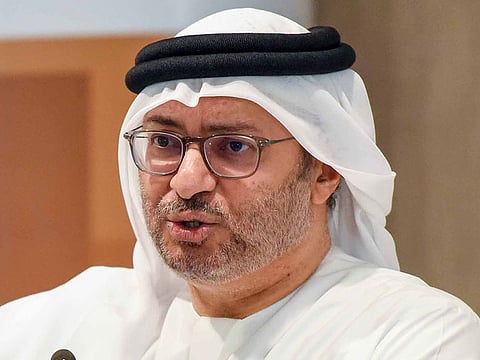UAE says Qatar’s Opec exit a political move
Withdrawal an admission of its declining role, UAE minister Anwar Gargash says

Also In This Package
Dubai: The UAE has called Qatar’s decision to exit the Organisation of Petroleum Exporting Countries (Opec) political in its origin, according to a tweet by Minister of State for Foreign Affairs Dr Anwar Gargash.
“The political dimension of Qatar’s decision to withdraw from Opec is an acknowledgment of its declining role and influence in view of its political isolation,” the tweet says.
“The economic aspect of Doha’s withdrawal is less important and does not justify the decision at this time. From now on, we expect attacks against Opec unleashed by Qatar’s media platforms,” Gargash’s tweet said.
“The UAE is confident and reassured — this is the message sent by the UAE through its National Day celebrations. The country is cohesive and confidence is strong in its leadership, while the economic landscape is promising, with an ambitious vision of the future.”
Qatar said it was quitting Opec from January to focus on its gas ambitions, marring efforts to show unity before this week’s meeting of exporters to tackle an oil price slide. Doha is one of Opec’s smallest oil producers, but the world’s biggest liquefied natural gas (LNG) exporter.
Qatar’s Minister of State for Energy Affairs Saad Al Ka’abi said the country would leave Opec from January, and would not be committed to any agreements by the group thereafter. Accounting for less than 2 per cent of Opec’s output, Qatar’s exit is most significant for any potential impact on Opec’s cohesion.
“The symbolism is profound,” said Helima Croft, commodities strategist at RBC Capital Markets LLC and a former analyst at the Central Intelligence Agency. “Given that concentrating on LNG should not be incompatible with Opec membership, the move will invariably lead many to conclude that the geopolitical divisions had become too intractable.”
Even through extreme events like the Iran-Iraq war in the 1980s or Saddam Hussain’s 1991 invasion of Kuwait, producers still saw the benefits of retaining their membership and cooperating on oil policy.
Since non-members started cooperating with Opec in 2016, direct talks between Russia and Saudi Arabia often bypass the group’s traditional decision-making process. The surge in North American oil production has also shifted the balance of power away from the Middle East.





